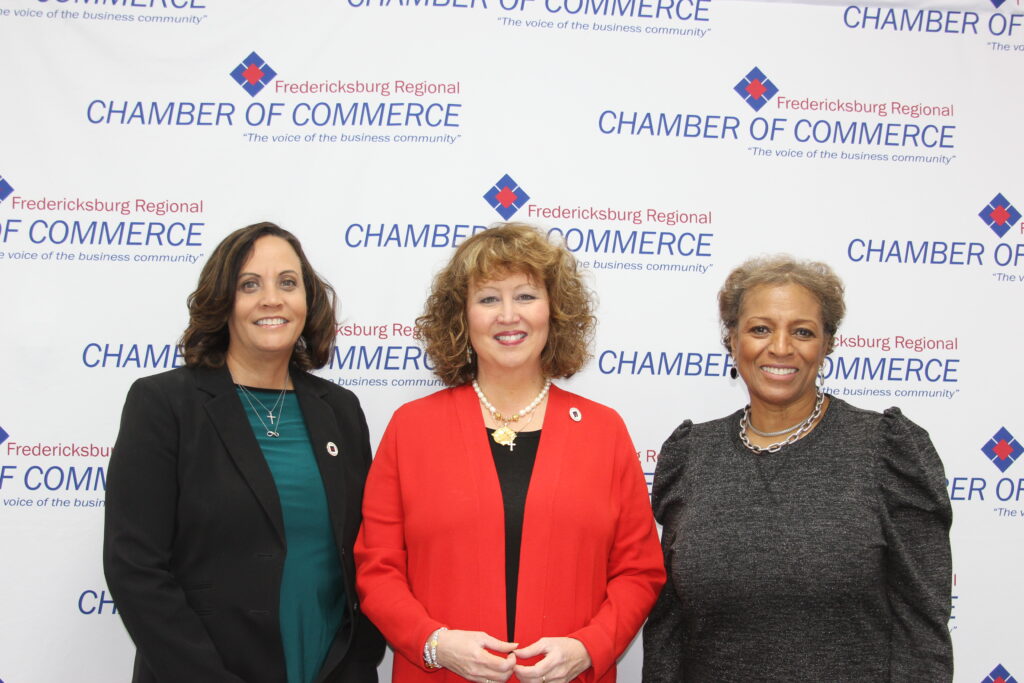 The Chamber hosted the 3rd annual Women’s Symposium on Friday, March 22nd at the A&B Creative events space. The day was full of empowerment and education! Those in attendance heard stories of women leaders in our community who have used mentoring or been mentored themselves to break through and allow for genuine connections, promote community engagement and have a lot of fun!
The Chamber hosted the 3rd annual Women’s Symposium on Friday, March 22nd at the A&B Creative events space. The day was full of empowerment and education! Those in attendance heard stories of women leaders in our community who have used mentoring or been mentored themselves to break through and allow for genuine connections, promote community engagement and have a lot of fun!
Meghan Shepherd, COO of SimVentions, facilitated a panel discussion with Susan Spears, President and CEO of the Fredericksburg Regional Chamber of Commerce; Susan Coleman, CEO and Founder of Coleman Coaching and Consulting; and Veronica Curry, Associate Vice President of Human Resources at Germanna Community College on what mentoring is and why it is important. Read on for the big takeaways from the panel discussion.
Selecting a Mentor: Observing the people around you who inspire you and excel in areas you wish to improve is a great way to find a mentor. Whether it’s their kindness, confidence in team meetings, or professionalism, identify the traits you want to develop further and seek guidance from someone you believe can assist you.
What does the role of a mentor entail: Mentors can be someone familiar or someone you hardly know. A mentor offers both personal and professional advice and serves as a supportive listener. Mentors come in all ages, backgrounds, and diversities, and anyone can take on the role. However, it is important to note that not everyone may be the right fit as a mentor for you.
Unrealistic Expectations of Mentors: It’s common for mentees to seek guidance from a mentor for every issue, assuming they know everything. However, mentoring is not a one-size-fits-all approach, and mentees cannot expect their mentor to have all the answers. Expecting immediate results is another issue that can arise in the mentor-mentee relationship. It is important to understand that things may not unfold as quickly as anticipated and that investment has to come from both the mentor and mentee for an equally beneficial and overall healthy mentoring relationship.
Formal and Informal Mentorship: Whether through structured programs or organic connections, mentorship can take various forms. Formal mentorship entails deliberate matching based on specific criteria, while informal mentorship unfolds naturally, often among peers within the same profession.
Having a mentor can be a crucial connection in your life. A mentor can be a source of motivation and encouragement during difficult times, and can help you see things from different perspectives. Building a strong mentor-mentee relationship can truly make a positive impact on your life and those around you as well as help you achieve those goals you’ve set for yourself.
.
